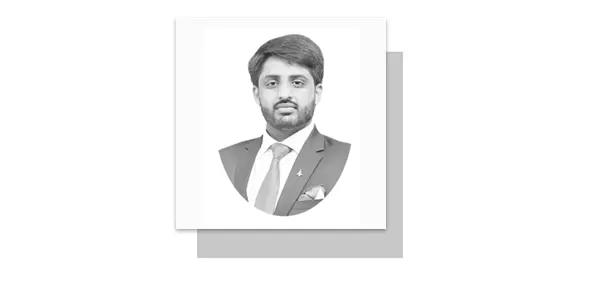THE arrest of Constable Muhammad Wali, the primary accomplice in the January 30, 2023, Police Lines suicide attack, marks a significant achievement for Pakistan’s law enforcement agencies in their ongoing counter-terrorism efforts. Muhammad Wali’s capture not only brings justice closer for the victims of this tragedy but also exposes the intricate web of radicalization that terrorist organizations are weaving, even within critical institutions like the police force. Muhammad Wali’s background as a serving constable in KP police makes this case particularly concerning. Hailing from Peshawar, Wali joined the police force in 2019, a role meant to uphold peace and protect citizens. Instead, he became an insider threat—a “black sheep” within police ranks.
Wali’s journey into extremism reveals the influence of social media in recruiting young, impressionable individuals. In 2021, he connected with “Junaid,” an agent of Jamaat-ul-Ahrar, a terrorist organization, through Facebook. Operating from Afghanistan, Junaid leveraged social media to recruit people for extremist causes, targeting those who were easily influenced. He persuaded Wali to travel to Afghanistan, where he was introduced to senior commanders, including Salahuddin and Mukarram Khorasani. By the end of the visit, Wali had pledged allegiance to Jamaat-ul-Ahrar, joining a network committed to sowing terror and chaos in Pakistan.
The transition of a police constable into a terrorist highlights the effectiveness of terrorist groups’ online recruitment tactics, as well as the vulnerabilities within segments of society that may be susceptible to such propaganda. It also raises serious concerns about the role of social media platforms, which have inadvertently become tools for extremist recruitment and radicalization.
Wali’s role in Police Lines bombing reveals a meticulously planned operation. Assigned to Police Lines Peshawar, Wali was directed by his handler, Junaid, to avenge the killing of Jamaat-ul-Ahrar commander Khalid Khorasani. The attack, and Wali’s role in it, reveals the cold-blooded calculus of terrorists and their willingness to exploit their recruits to achieve their ends.
Wali’s involvement in terrorism did not end with the Police Lines attack. His confession has revealed a series of other heinous activities, including his alleged role in 2022 assassination of a Christian priest in Peshawar, planting IEDs along Warsak Road in 2023, and facilitating multiple attacks in Peshawar and Lahore.
The arrest of Muhammad Wali is a significant breakthrough for Pakistan’s law enforcement agencies, who have been working tirelessly to dismantle terrorist networks. Furthermore, the use of social media by extremist groups to radicalize individuals like Wali necessitates a closer collaboration between security agencies and technology platforms to monitor and curb terrorist recruitment online. With proper digital monitoring and public awareness campaigns, the influence of online extremist recruiters can be significantly curtailed.
The arrest of Muhammad Wali, a trusted officer turned accomplice to terror, is a tragic but crucial reminder of the complex challenges Pakistan faces in combating extremism. The capture brings some justice for the victims of the Police Lines attack, it highlights the pressing need for vigilance, transparency, and enhanced security protocols within.
—The writer is Islamabad based expert of strategic affairs
(asadmalik2008@gmail.com)










